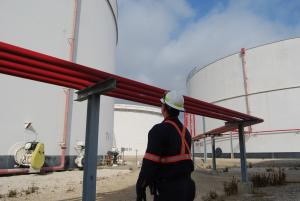The Editor,
Re. “Review ends with whimper & 157 conditions” (Green Scene, The Tri-City News, June 10).
The National Energy Board concluded the Trans Mountain Expansion Project is in Canada’s public interest and can be constructed, operated and maintained safely. The recommendation is the culmination of a comprehensive review that considered many thousands of hours of environmental studies, scientific evidence and community engagement.
In addition to meeting the 157 conditions set out by the NEB, we’ve made hundreds of commitments to address concerns, including protecting marine life, species at risk, incident prevention and safety. Many of these are in response to feedback, and if our project is approved, we’ll fulfill each one.
We know that protecting the coast is paramount to residents, and we couldn’t agree more. We understand the concerns raised about tanker traffic, spills and emergency response, and that’s why we’ve carefully developed measures to protect the health of communities.
We’ve been safely loading vessels for more than 60 years at our Burnaby terminal without a single spill from a tanker. While the region’s safety regime already meets global standards, we’ve committed to additional measures that will further improve safety along the shipping route.
These include a $100-million investment in Western Canada Marine Response Corporation to create new response bases, fund new equipment and employ 100 new people. This will double the spill-response capabilities and cut mandated response times in half. Combined with measures to prevent spills, our goal is to have an industry-leading emergency response plan that’s never used.
If a spill were to occur on our pipeline system, we would be required to cover the entire cost of the cleanup. Oil pipeline companies are required by regulation to hold $1 billion in financial resources. We hold multiple financial resources to ensure we have the funds to deal with an emergency situation, including cash, close to $900 million in insurance and nearly $4 billion of credit.
In the event of a marine oil spill, the ship owner pays for the entire cost of response and cleanup. Liability is governed by federal laws that establish sources of funding above and beyond the ship owner’s insurance.
Through these sources close to $1.5 billion is available for an individual spill.
Earning trust and confidence has always been a priority for us and we know there’s still more work to do. By working together we can build an expansion that balances social, environmental and economic interests, and delivers lasting benefits for Canada.
Michael Davies,
Kinder Morgan Canada



